Finding new ways to grow your lawn can feel like an endless task at times. Do you want to try Bermuda grass but don't know how to spread it properly? Well, we've done some research into this very topic and have the answers here for you. Let's get right into them below.
For those wanting to spread Bermuda grass seeds in their garden, doing this won't be too hard. To start:
- Choose if you wish to spread your seeds by hand or with a spreader.
- Rake the area where you want to have your grass grow.
- Grab your seed and spread it evenly over the freshly raked soil.
- Cover your Bermuda grass with a thin layer of soil, ideally 1/4 inches.
- Rake your newly spread seeds, give them some water, and you're done!
As we begin, we will cover all things Bermuda grass and discuss how to grow it in your garden. Whether you're new to growing grass or need advice for a lusher, greener lawn, we're here to help. With that said, let's jump right into this post!
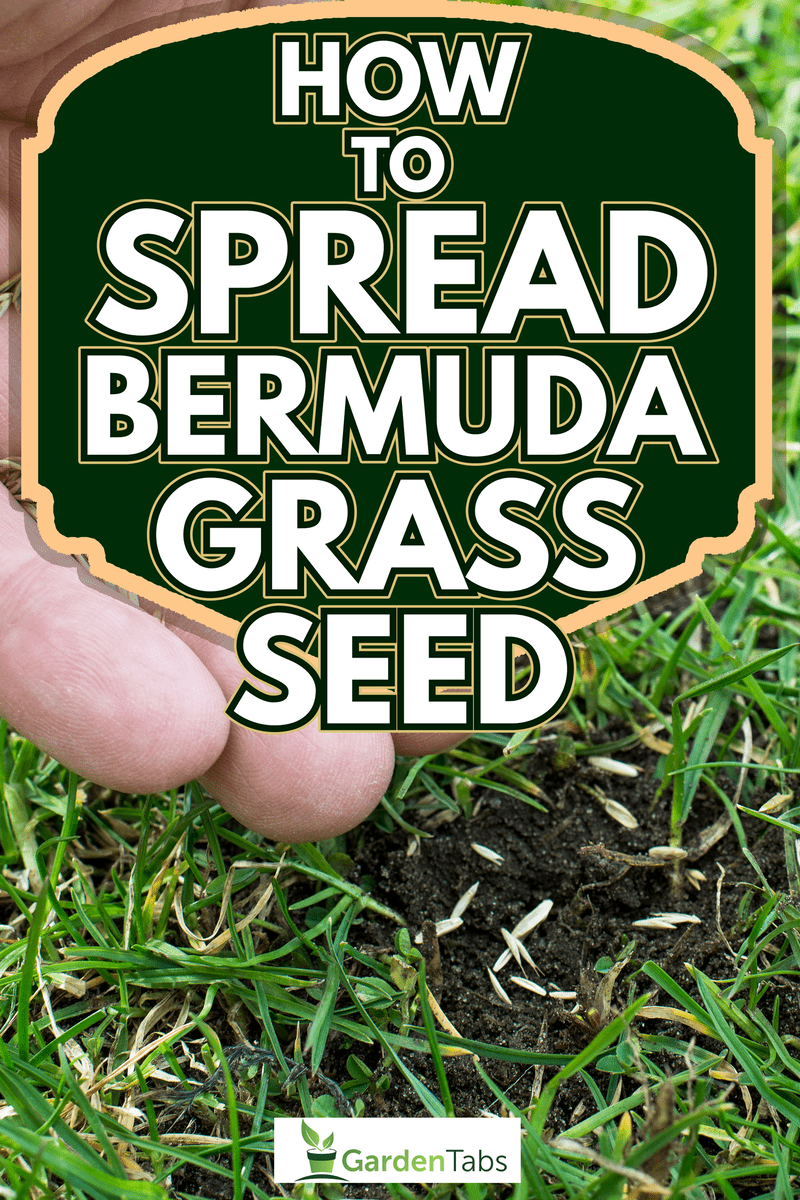
Can You Just Spread Bermuda Grass Seed?
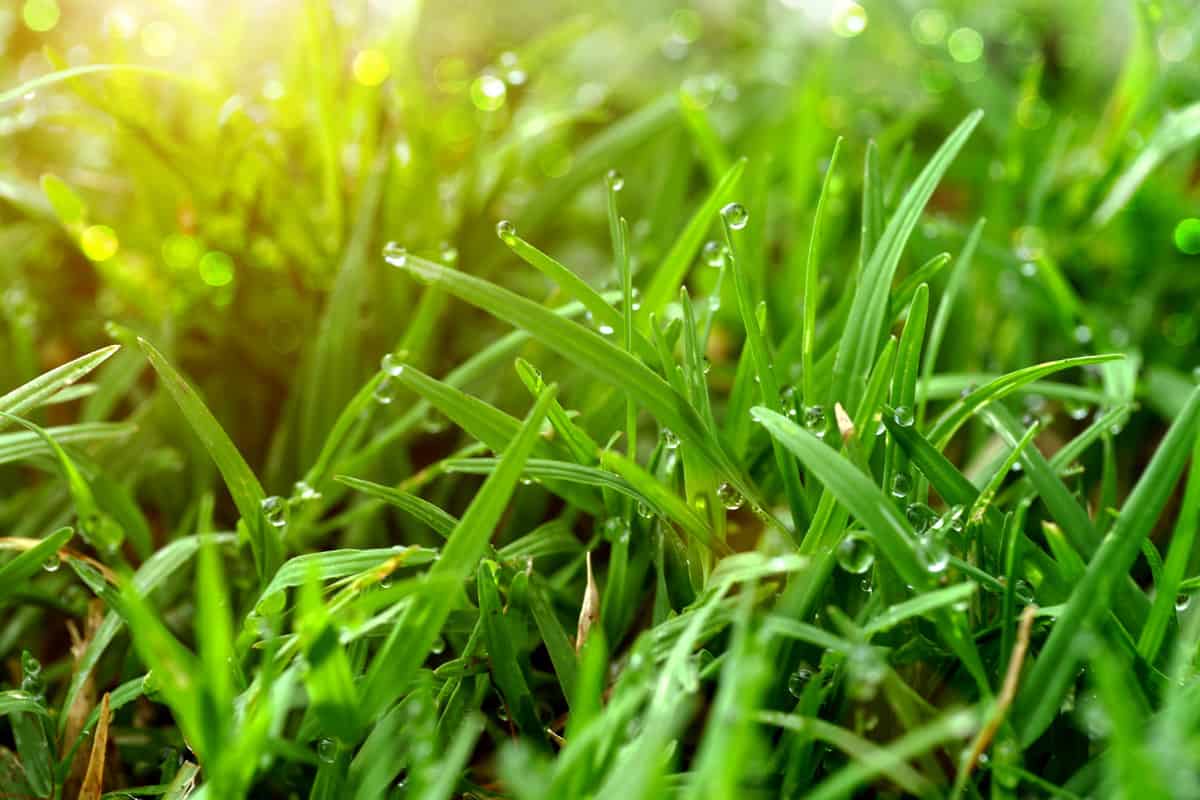
As long as you have Bermuda grass seeds, you can spread them however you please. As we mentioned, using a seed spreader is what many choose to do, as it makes the job easier.
Grass seeds, in general, tend to be pretty easy to sprinkle over the ground, as they come in big bags. The key to a good lawn is an equal, thorough spread, so that's what you should focus on.
It's also essential to prepare the ground for your new Bermuda seeds, so make sure to remove any weeds you can see. Furthermore, you want the ground to be somewhat soft to hold the seeds, so if your land is dry, try giving it a light watering.
Is It Better To Spread Bermuda Grass Seeds By Hand?
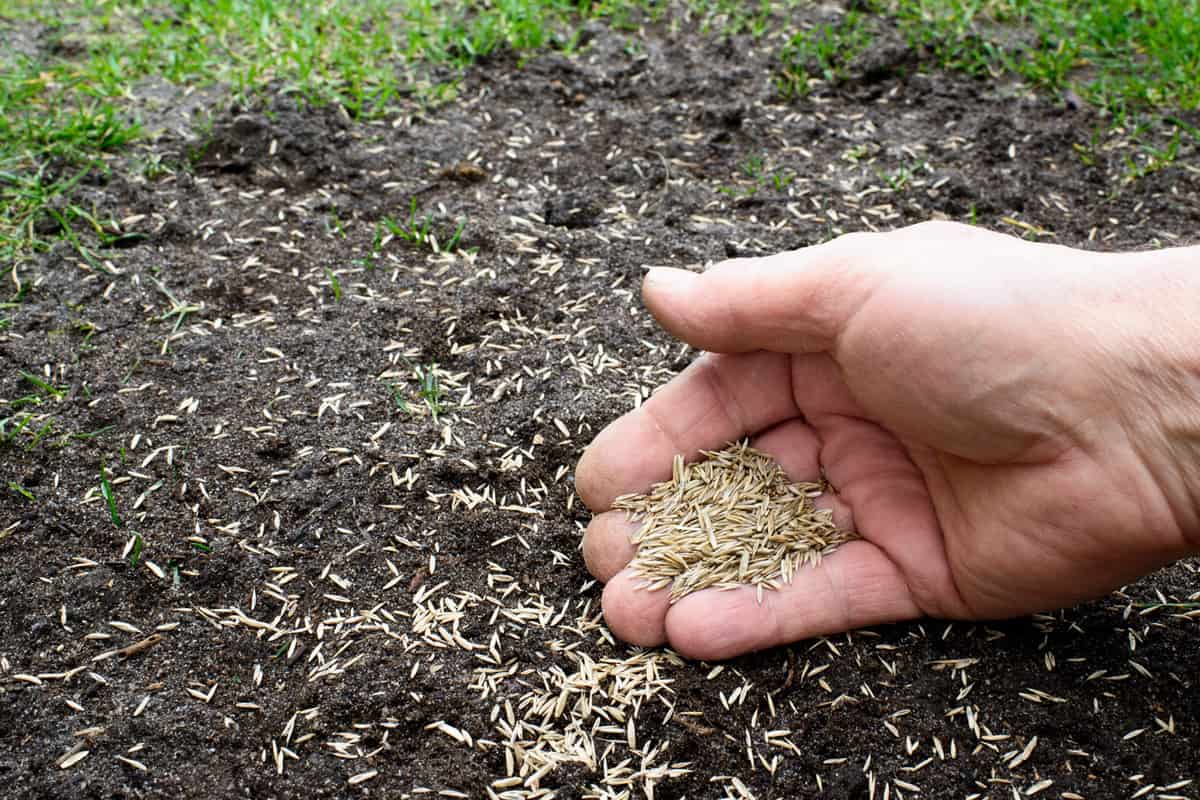
In general, spreading grass seeds by hand can be a lengthy process. Although it is a great way to start your lawn, using a spreader is our recommendation.
With that said, there are endless spreaders available. Of the group, stick with an automatic handheld option or a mini broadcast design.
Scotts makes a highly rated, easy-to-use mini spreader, so that's one idea to try. Regardless, you want to try and spread your seeds as evenly as possible to ensure your lawn isn't patchy.
Scotts Turf Builder EdgeGuard Mini Broadcast Spreader
This smaller-sized spreader holds up to 5,000 square feet of seeds, comes pre-calibrated, promises a smooth, even spread, and comes in a few sizes.
Follow this link to see it on Amazon.
How Long Does It Take For Bermuda Grass Seeds To Grow?
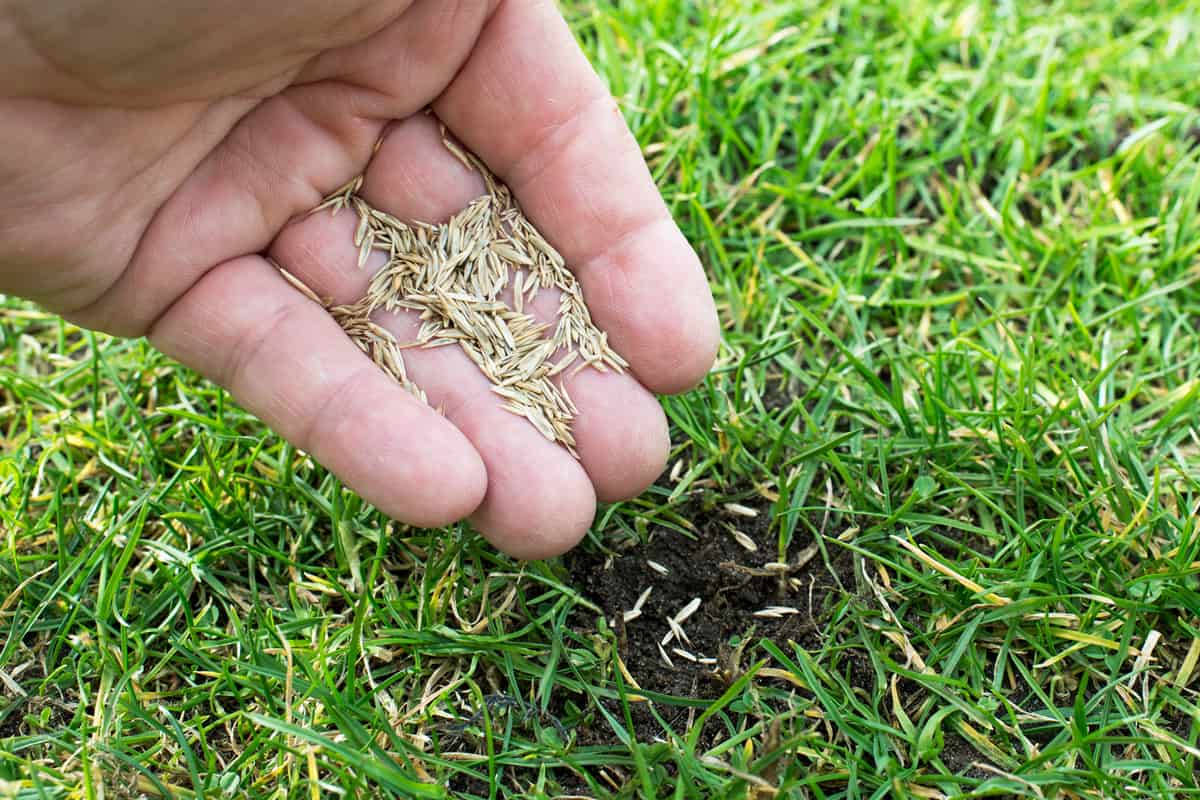
Most times, Bermuda grass seeds will begin to germinate/grow within 3-7 days. Of course, that's assuming they are in ideal conditions, so you may wait between 14 and 21 days for anything to happen.
Considering this grass species prefers tropical conditions, having yours be in warm, somewhat moist weather is essential. Many gardeners choose to plant Bermuda grass in the early spring, although you may be able to wait until summer, depending on how hot it is.
Furthermore, Bermuda grass is somewhat easy to grow from seed, hence why it's so popular. However, if the conditions where your grass is aren't good, you may not see your lawn grow much or at all.
Is It Hard To Grow Bermuda Grass From Seed?
No, growing Bermuda grass from seed shouldn't be too difficult. As we covered above, Bermuda grass loves warm, moist climates, so as long as your home is somewhere sub-tropical, it should be fine.
One of the perks of Bermuda grass is how quickly it grows into a lush, green lawn. You could begin to see sprouting in as little as three days with this species, which is impressive.
Bermuda grass is also very hardy. Specifically, this type of grass can out-compete weeds and many common diseases/pests.
However, for Bermuda grass to thrive, it needs to be sunny out moist outside. So if you're somewhere like Minnesota, you may want to avoid growing this variation.
Is Bermuda Grass Invasive?
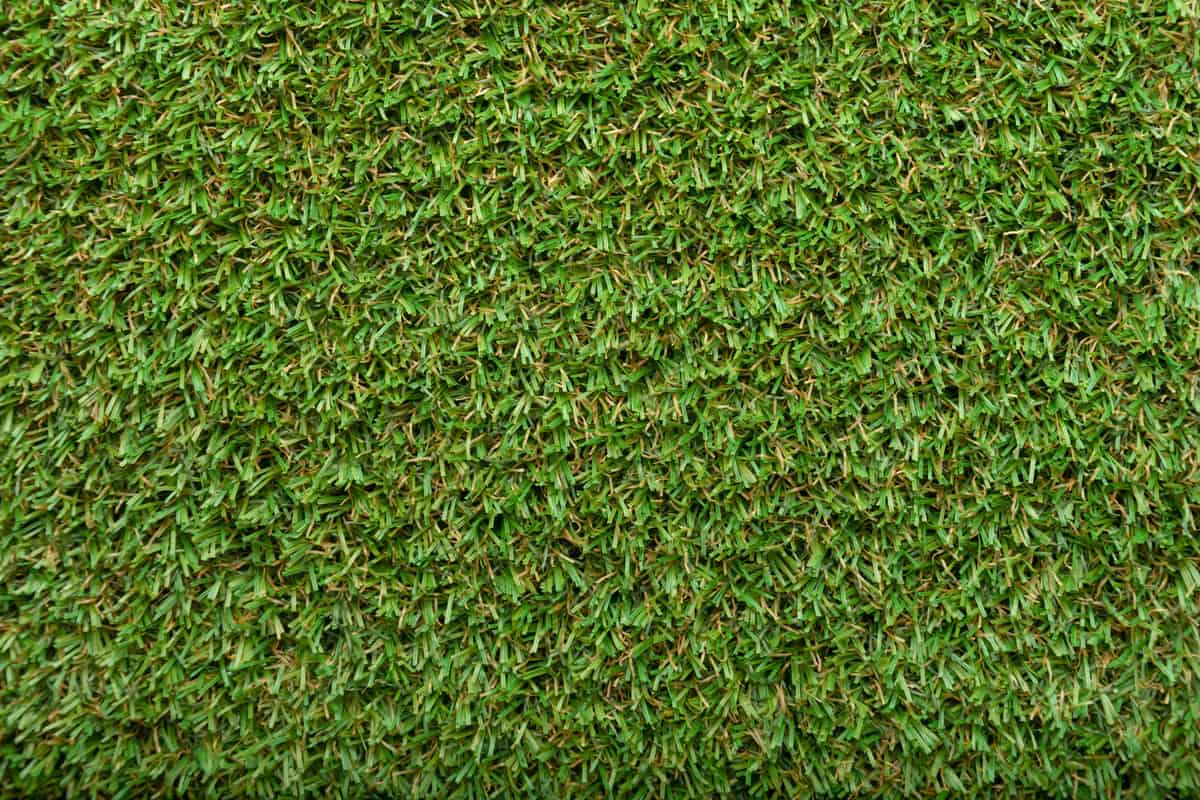
Although Bermuda grass has many positive attributes, it can be somewhat invasive. According to the University of California, Bermuda grass can also be an invasive weed.
This grass species tend to take over entire strips of land and, if left unmanaged, can become a problem in your garden. As we covered, Bermuda grass is extremely hardy and weed-tolerant.
So, yes, that can be a great thing if in moderation, so keep an eye on your lawn. You may even want to create a stone/secure border around your grass to keep it from spreading to other property sections.
How Deep Are Bermuda Grass Roots?
In general, you can expect Bermuda roots to reach as deep as six feet. Depending on the quality of your soil, it's likely your grass will extend beyond that.
However, 80% of your Bermuda's root system is found in the top six inches of soil. That is important to know because this is where they will absorb most of your grass's nutrients and water.
According to Pennington Seed, Bermuda grassroots are deeper than other warm-season grass varieties, which plays a role in its resilience. These deeper roots can also help in times of drought, as they can store more water than grass with shorter root systems.
Where Can I Grow Bermuda Grass?
Ideally, you want to grow Bermuda grass somewhere with plenty of sun, space, and water. Considering that this species will flourish if you allow it, leaving room for your grass is crucial.
It's also important that Bermuda grass has good draining, nutrient-rich soil. Although it is hardy, you won't see it as green or full of a lawn if you don't feed your grass well, so keep that in mind.
On top of that, Bermuda grass is drought-tolerant, so if you're somewhere very sunny, this is perfect for your grass. Of course, you want to water your lawn about 1-2 times a week if it's unusually hot/dry out, but for the most part, once weekly is fine.

Does Bermuda Grass Like Full Sun?
Yes! Bermuda grass loves the sun. As we said, Bermuda grass loves as much warmth as it can get, so growing it in direct sunlight is a great idea.
On top of that, your grass will germinate faster in the sun. This is especially important for those wanting to grow their lawn from seed, as the initial waiting period can be lengthy for certain species.
However, if your garden has partial sun, you should still be able to grow a lush, green landscape. Some shade isn't always bad for grass, especially if you live in the desert.
As we mentioned, growing Bermuda grass should be one of the easier options.
Will Bermuda Grass Grow In The Shade?
If your garden is mainly shaded, you may want to avoid growing Bermuda grass. According to the University of Arizona, this popular grass variety won't persist in super shady areas.
That means your lawn could be patchy, weak, and thin if it doesn't have enough sunlight, ultimately killing it. That said, if your grass gets at least a few hours of full sun every day, you shouldn't run into significant issues.
Specifically, make sure your yard gets around 4-5 hours of direct, warm light each day before deciding which grass you want to grow.
How Often Should I Water Bermuda Grass?
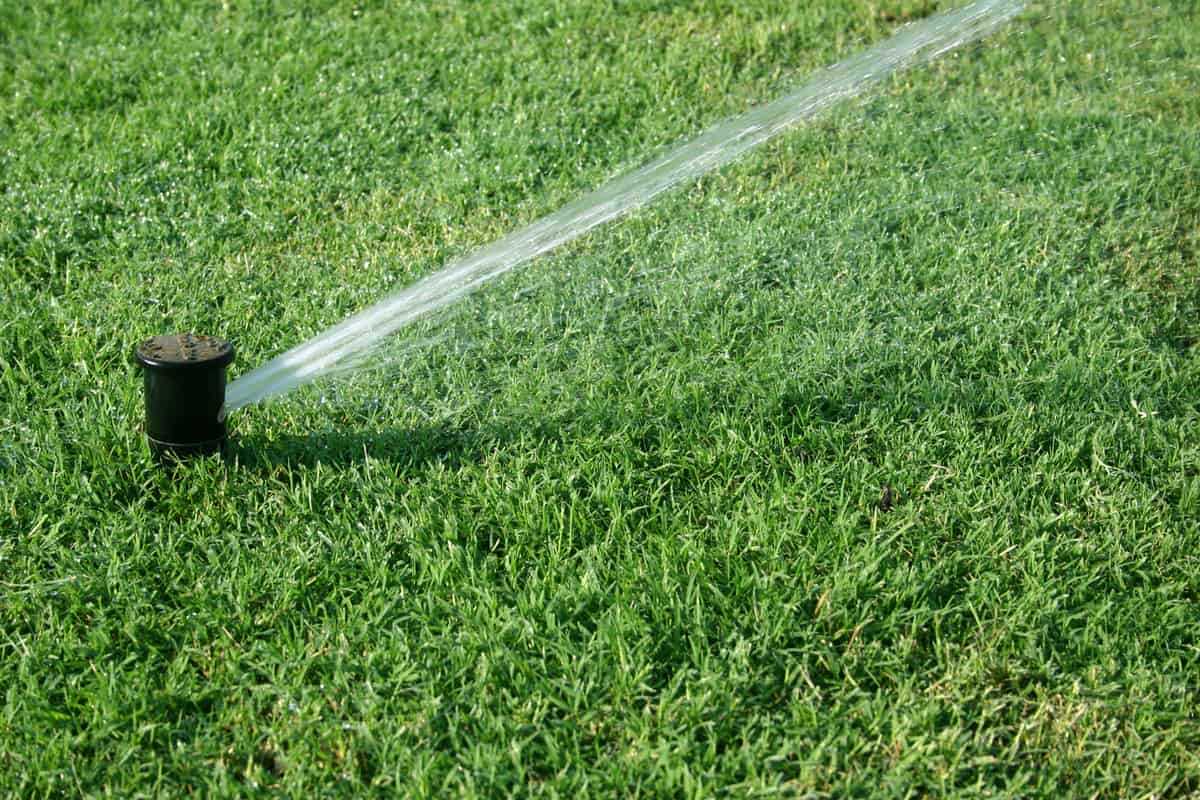
Usually, you only need to water Bermuda grass once every week. Bermuda grass does best when it gets at least 1-1.25 inches of water every week.
Of course, that could mean more or less watering, depending on your climate. For example, if you're in Nevada and it's summertime, you may need to water your lawn every three days.
On the other hand, if you're somewhere more temperate like California, your lawn may be OK for watering every 7-10 days.
Again, this will vary for everyone, so you may want to purchase a soil moisture meter, so you don't over/underwater your Bermuda grass.
XLUX Soil Moisture Meter
This moisture meter doesn't need batteries, has a seven-inch probe, won't hurt roots, and comes in two sizes.
View this soil tester on Amazon here.
Should I Water Bermuda Grass Every Day?
No, generally, you don't need to water Bermuda grass daily. Even if it's super hot and dry, Bermuda grass will be fine with water every three or so days.
Although plenty of moisture seems like a good idea, too much can drown your lawn. As we covered before, this grass species will be drought-tolerant.
That means if you forget to water or don't want to use as much weekly for your yard, your grass should be able to withstand the heat.
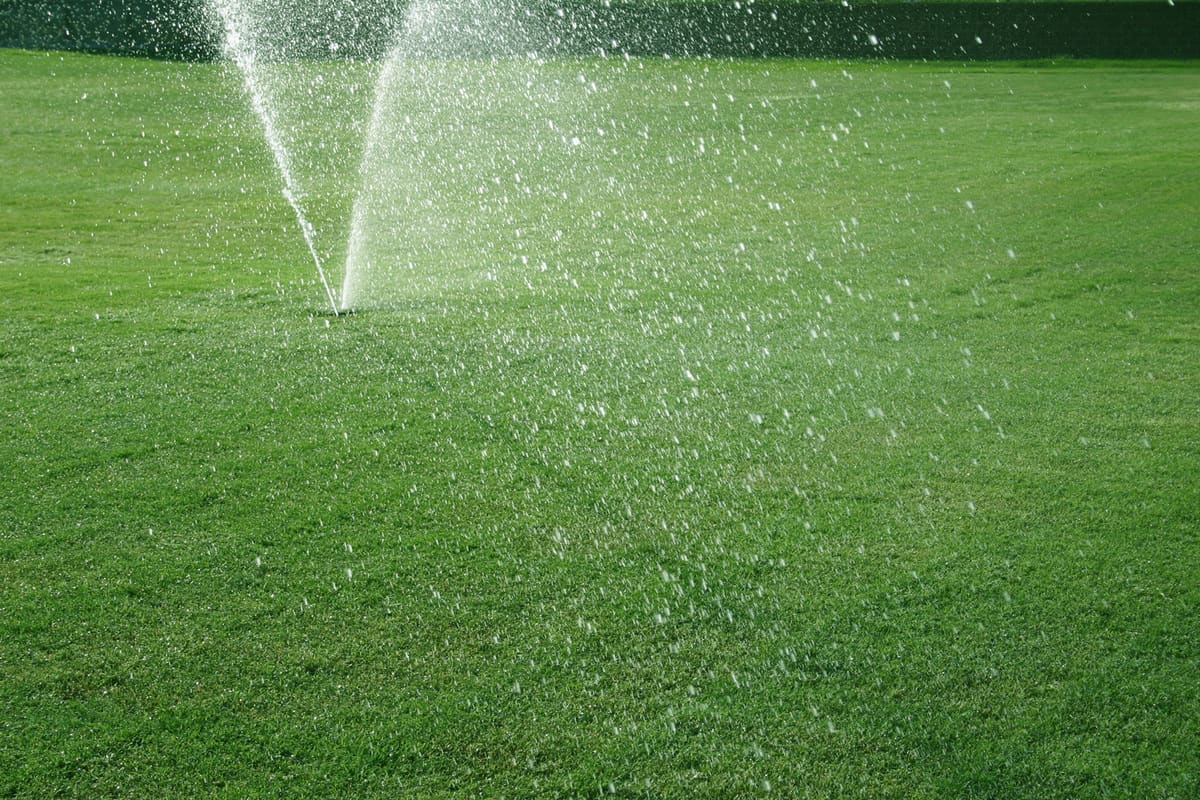
To Wrap It All Up
Whether you want to refresh your current lawn or try planting grass for the first time, knowing how to do this is crucial. From what we found, spreading Bermuda grass seeds won't be super hard.
You can manually spread your seeds or use a handheld/mini spreader. It's also very important to clear the soil and rake it before laying down your seeds. Doing this ensures a healthy, even lawn.
Regardless, make sure to plant your Bermuda grass somewhere that gets plenty of sunshine, and don't be afraid to cut back on watering in the summer.
Made it to the end? Check out these super helpful garden posts below!
How Long Can Grass Seed Go Without Water?


